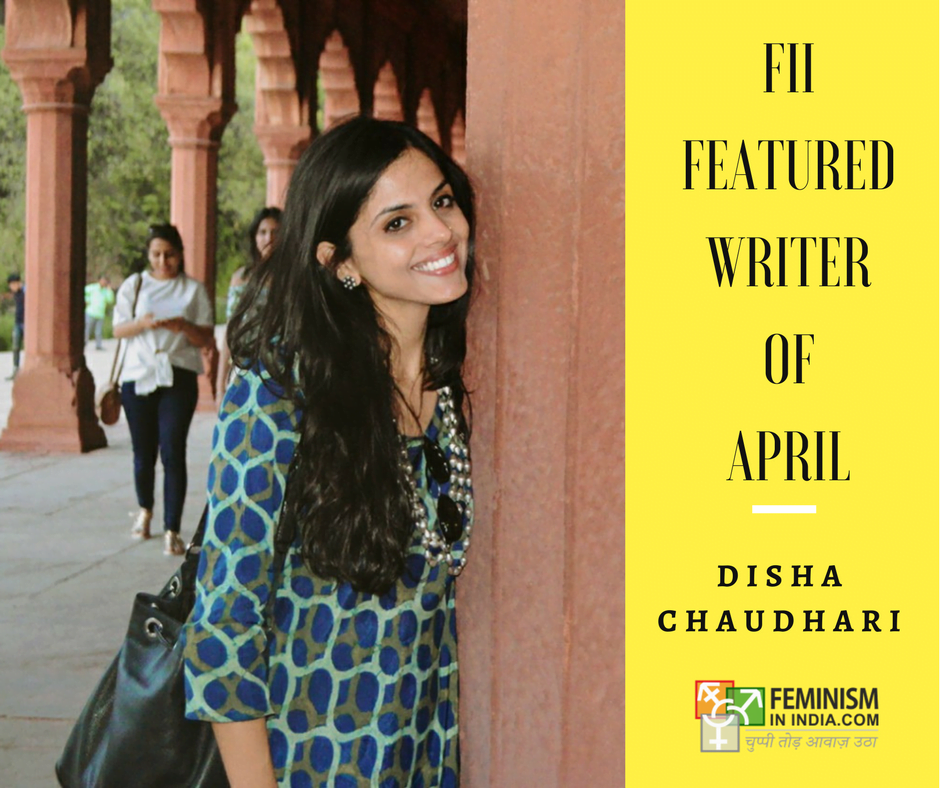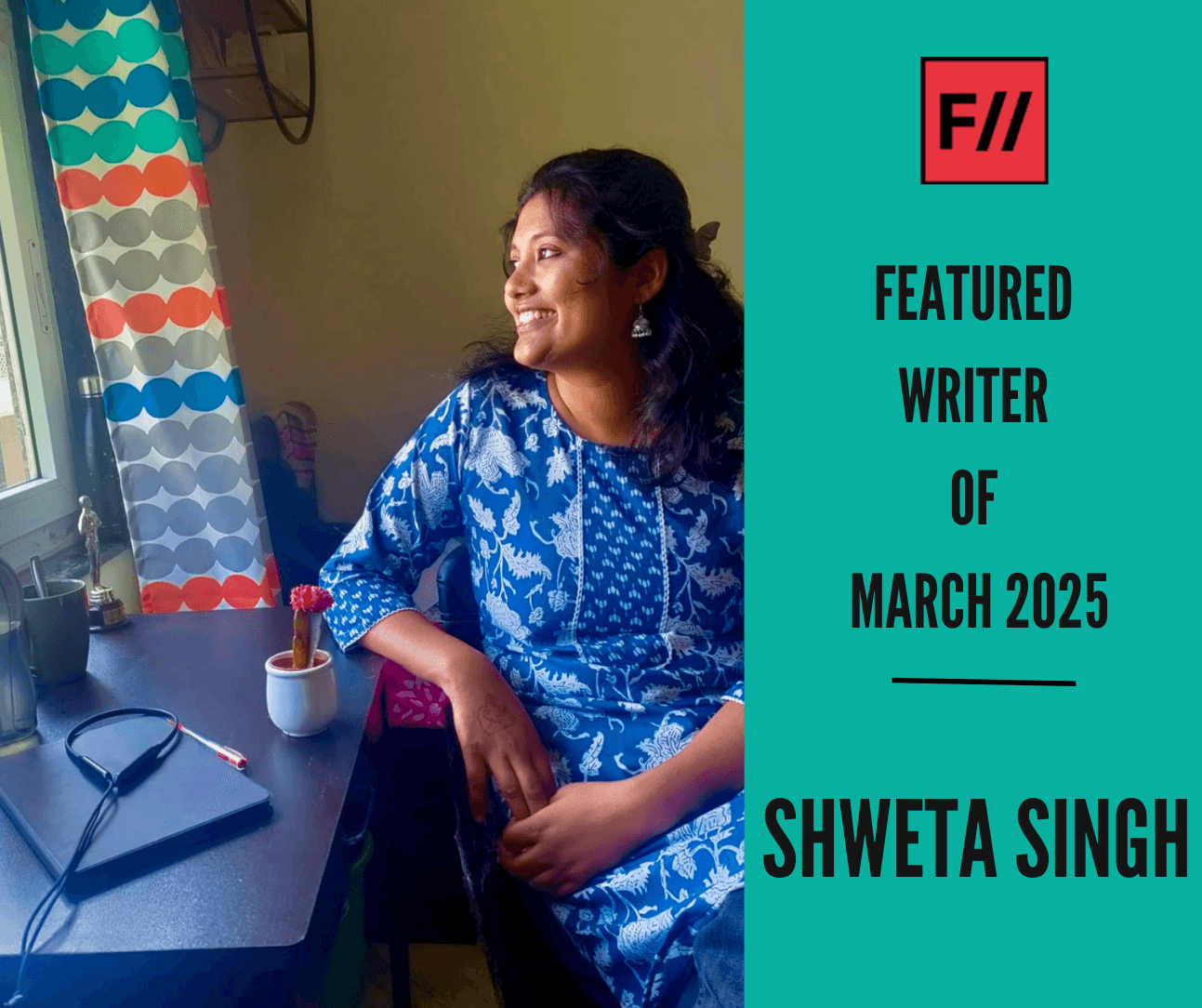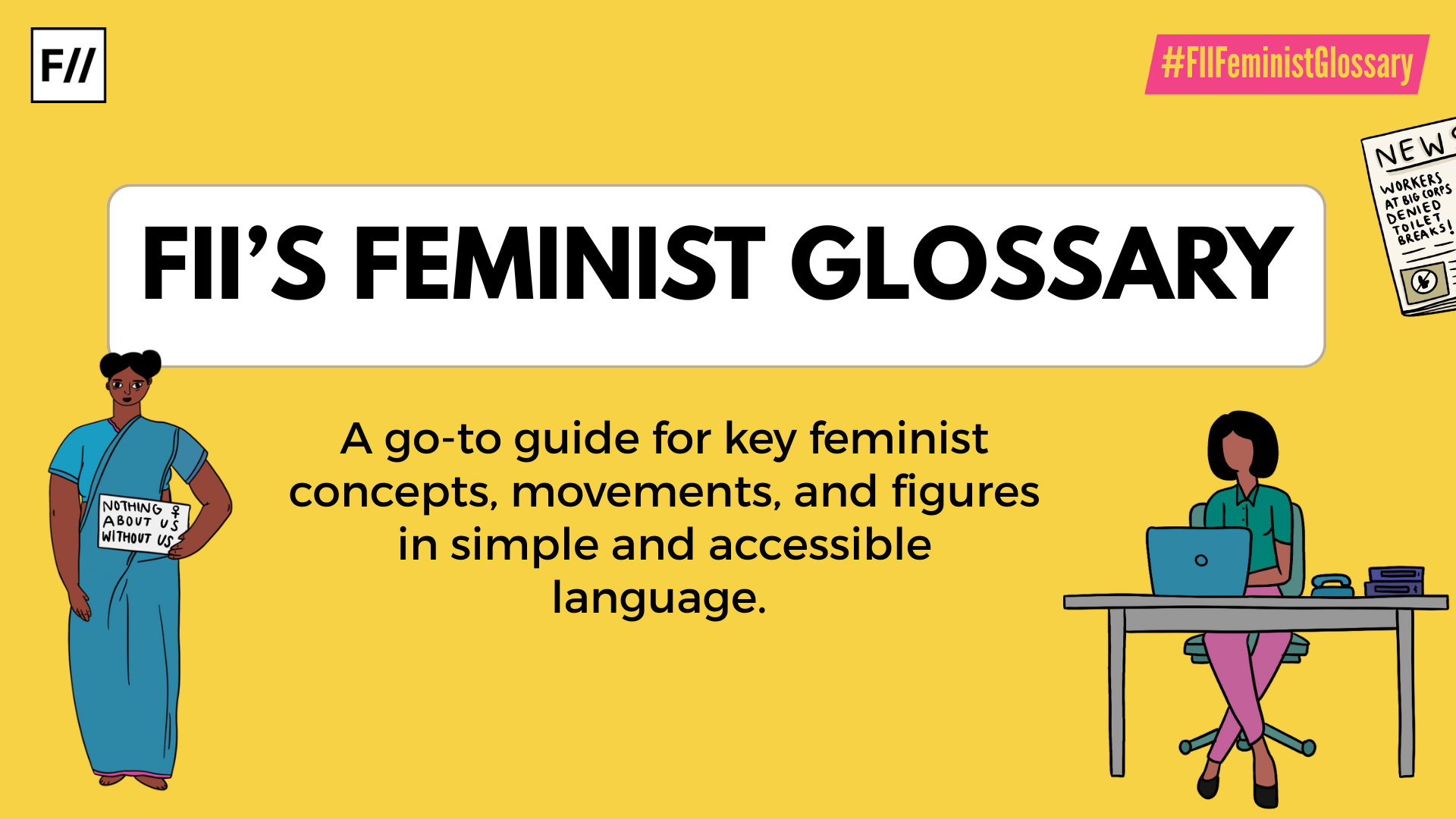This year, we have been featuring the best writers from our writer community for their committed contribution to FII, making it what it is today. FII would not exist if not for the passionate and loyal feminist writer community that we have steadily been building over the last three years. This month, we feature Disha Chaudhari. Having started out as an intern with FII in October 2016, Disha lent her legal background to the website and has written 12 posts for the website. Her precise interpretations of laws and acts, like the Hindu Marriage Act and the Indecent Representation of Women (Prohibition) Bill gave our readers an insight into the vagaries of Indian Law, and her post named The Advertising World Hates Women That Are Comfortable In Their Skin was a sharp critique of how the advertising industry profits off of women’s insecurities.
So, without further ado, let’s meet our Featured Writer Of April!
FII: Tell us a little about yourself and what you do.
DC: I grew up in Dehradun, being privileged enough to have the opportunity to attend Welham Girls’ School in Dehradun. I moved to Delhi in 2010 and completed my Bachelors’ Degree in Political Science from Lady Sri Ram College (LSR), after which I joined the Faculty of Law, Delhi University. I graduated in 2016 and am currently working as a Judicial Law Clerk at the Delhi High Court.
My five rules to live by:
- Too much coffee is a myth.
- Invest in a good red lipstick or two.
- Yoga for the body, ice cream for the soul.
- Smash the patriarchy.
- Hakuna Matata!
FII: How did you become a part of the FII writer family?
DC: I had been following FII’s social media, which is how I found out about their internship program. I joined the team as an intern in the month of October 2016 and after the internship ended in December, I asked if I could continue writing for them – and that was that. FII gave me an opportunity to read and write about subjects I was interested in outside the sphere of work and to continue doing that beyond the internship period has been an added bonus.
FII: How and when did you become a feminist? Which issues within feminism are close to your heart?
DC: My introduction to feminism was in my three years at LSR. Though the first year or more was spent being completely ignorant to what feminism truly meant, it was the latter half of that period, due to classroom interactions and engaging with women who came from different social contexts and backgrounds, that I really began to understand what it means to be a feminist. Feminism was offered as an elective subject in my third year at LSR and that was a turning point. The feminist works that I read as part of the curriculum and the discussions in classrooms made me revisit some of my intrinsic belief systems that had been passed down to me owing to our patriarchal society and challenge them.
Feminism has helped me understand the struggles of so many people I would have otherwise been ignorant of, even within my own family. It has taught me to be reflective of the interplay of caste, class, gender in analysing the experiences of people – women in particular. There is no one way to be a man or a woman as the world would have you believe. Feminism not only emphasises equality but defies gender stereotypes, giving people irrespective of gender and sexuality, caste and class, a system of beliefs to align with.
FII: What is your favourite piece on this site that you have written, and your favourite piece on this site that you have read? Why did they strike you?
DC: This is a tough choice so I am just going to pick two. The first is the interview I did with Isha Khandelwal of the Jagdalpur Legal Aid Group. Not only the work that JagLAG does, but these women themselves were such a source of inspiration and I am so glad I had the opportunity to meet with them. The second is the piece I did on advertising and imposed standards of beauty. This one is special because it came from a very personal place. Honestly though, I have enjoyed writing every single piece so much, with every subject being so diverse in its own way.
As far as the pieces on the site go, again there are so many of them. But if I had to pick one, it would be the piece by Srishti Agnihotri on Feminist Friendships. I have had 14 years of experience at all girls’ educational institutions and some of the most inspiring people in my life have been the women I met and befriended at these institutions. Srishti’s piece that celebrated feminist friendships and credited the women that have in some way shaped her life is definitely a favourite!
FII: What do you like to do when not writing about gender and social justice?
DC: I am not sure this is something that fits the “what do I like to do” bracket but more along what i would like to dedicate more time to, and that is to travel more often. I want to make a conscious effort to make time for country-wide exploration. Apart from that, I enjoy the occasional movie or theatre outings, and long walks when the weather is being kind. I am a sucker for a good cup of coffee and some ice cream to go with it, so ticking off every new cafe on the list would be another.
FII: What do you like about FII and our work? What more would you like to see from us?
DC: FII’s best feature is the diversity of work published by the team. The focus is to bring forth all voices, even the most marginalised, and in doing so ensure that the articles pertaining to marginalised groups come from those with experience of the marginalisation are not appropriated. This truly brings forth FII’s intersectional character. The FII team ensures their work is published using interactive media so that the outreach is much wider and the myth around the F-word and misconceptions surrounding the understanding of feminism are done away. The recent works of Harini Rajagopalan bringing out feminist issues by means of satirical cartoon illustrations, for instance has been a great way of spreading the word.
FII thanks Disha for her enthusiastic contributions to our website. You can read more of her work here and follow her on Twitter and Facebook. To become a part of our writer community, click here.
About the author(s)
Feminism In India is an award-winning digital intersectional feminist media organisation to learn, educate and develop a feminist sensibility and unravel the F-word among the youth in India.




